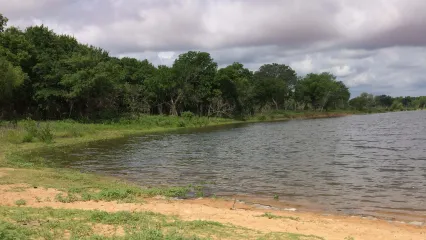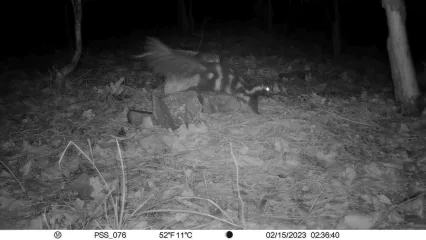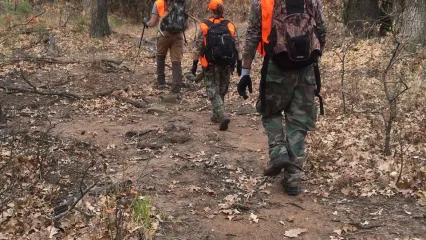Attention Non-Residents
The Oklahoma Wildlife Conservation Commission adopted new rules in 2025 that require non-residents accessing certain Oklahoma public hunting and fishing areas to check in and out of the area. By checking in and out of these areas, hunters, anglers, shooters, birdwatchers, hikers and any other users can help the Wildlife Department better understand how the area is being used. There is no additional cost associated with checking in or out of an area. There is no limit to the number of check ins for an individual in a year.

Contacts
Area Details
Fobb Bottom WMA is located on the shores of Lake Texoma in southern Marshall County. The nearest town is Willis, Oklahoma. The area is 2,205 acres in size and consists of mainly flood plain with about 700 acres being agricultural fields, and limited pockets of upland habitat.
From Madill: 16 miles south on U.S. Hwy 377, 1½ miles west on Fobb Bottom Rd, south into area.
- Deer: White-tailed deer are present in fair numbers.
- Turkey: Rio Grande wild turkeys are present in fair numbers, but limited by available habitat.
- Rabbit: Both cottontail and swamp rabbits are present.
- Furbearers: Coyote, bobcat, and raccoon are available.
- Dove: Present in fair numbers in season.
- Waterfowl: Waterfowl are usually present in good numbers when habitat conditions are favorable.
- Bald Eagle: Eagles winter in all areas of the WMA.
Management efforts focus on extensive agricultural plantings as well as producing native foods such as ragweed and sunflower. Prescribed burns are conducted when conditions permit.
In designated areas only.
Fishing opportunities exist on Lake Texoma, particularly for striped bass. Fishing also good for black bass and catfish species (flathead, blue and channel catfish).
Closed Seasons
Same As Statewide Seasons
Seasons w/ Special Restrictions
- Deer Muzzleloader, Deer Gun
Closed to antlerless hunting after opening day.
- Quail, Rabbit, Squirrel, Snipe, Woodcock, Pursuit with Hounds for Furbearers, Predator/Furbearer Calling
Closed during the first nine days of deer gun season.
- Turkey Fall Gun
Tom only, shotgun only.
- Trapping
Open to water sets, live box traps and enclosed trigger traps only.
- Turkey Spring, Youth Turkey Spring
One-tom limit; seasons combined.
Hunter and angler camping is allowed in designated areas.
For One Survey Team, “Getting Skunked” Smells Like Success
Getting skunks on camera was a critical first step in an Oklahoma State University survey team’s effort to learn more about the Plains spotted skunk population in southeastern Oklahoma. The secretive and little-known skunk was detected at about half of the survey sites on the Ouachita National Forest.
Apprentice Designation: A Learner's Permit for Hunting
Hunter education has greatly reduced hunting accidents, but if you can’t complete a course right away, the apprentice designation allows you to hunt under supervision. It works like a learner’s permit, giving you the chance to gain real experience safely until you finish hunter education.


